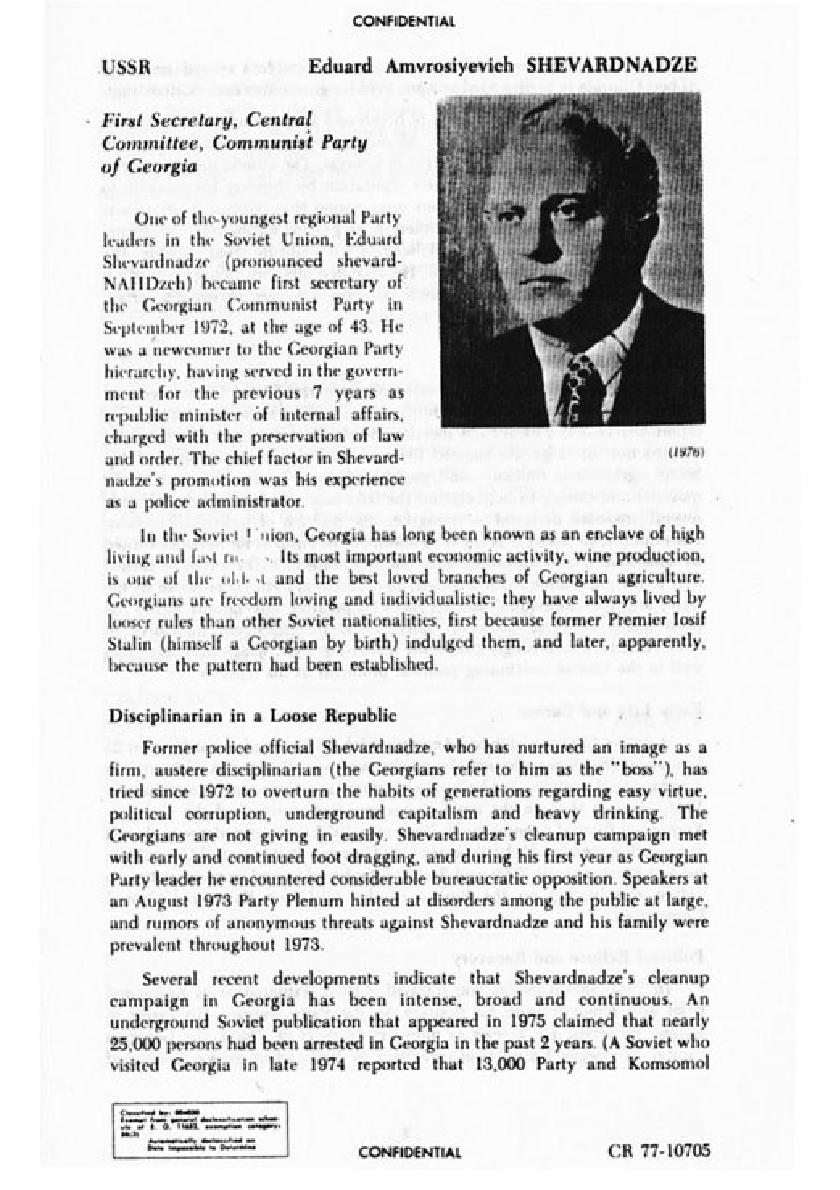Confidential
An image should appear at this position in the text. To use the entire page scan as a placeholder, edit this page and replace "{{missing image}}" with "{{raw image|Espionage den04 50.png/1}}". Otherwise, if you are able to provide the image then please do so. For guidance, see Wikisource:Image guidelines and Help:Adding images. |
One of the youngest regional Party leaders in the Soviet Union, Eduard Shevardnadze (pronounced shevard-NAHDzeh) became first secretary of the Georgian Communist Party in September 1972, at the age of 43. He was a newcomer to the Georgian Party hierarchy, having served in the govern-ment for the previous 7 years as republic minister of internal affairs, charged with the preservation of law and order. The chief factor in Shevardnadze's promotion was his experience as a police administrator.
In the Soviet Union, Georgia has long been known as an enclave of high living and fast re(ilegible). It's most important economic activity, wine production, is one of the oldest and the best loved branches of Georgian agriculture. Georgians are freedom loving and individualistic; they have always lived by looser rules than other Soviet nationalities, first because former Premier Iosif Stalin (himself a Georgian by birth) indulged them, and later, apparently, because the pattern had been established.
Disciplinarian in a Loose Republic
Former police official Shevardnadze, who has nurtured an image as a firm, austere disciplinarian (the Georgians refer to him as the "boss"), has tried since 1972 to overturn the habits of generations regarding easy virtue, political corruption, underground capitalism and heavy drinking. The Georgians are not giving in easily. Shevardnadze's cleanup campaign met with early and continued foot dragging, and during his first year as Georgian Party leader he encountered considerable bureaucratic opposition. Speakers at an August 1973 Party Plenum hinted at disorders among the public at large, and rumors of anonymous threats against Shevardnadze and his family were prevalent throughout 1973.
Several recent developments indicate that Shevardnadze's cleanup campaign in Georgia has been intense, broad and continuous. An underground soviet publication that appeared in 195 claimed that nearly 25, 00 persons had been arrested in Georgia in the past 2 years. (A Soviet who visited Georgia in late 1974 reported that 13, 00 Party and Komnosol
